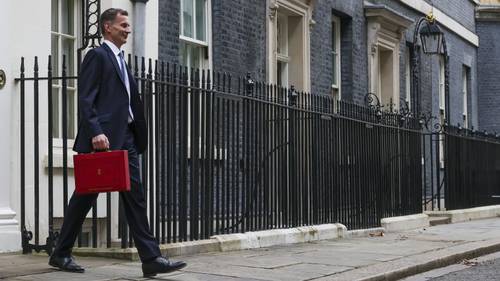Artificial intelligence (AI) remains the hot ticket tech sector, with the release of OpenAI’s GPT4 only fanning the flames. Last week the chancellor, in an effort to ensure the UK can keep pace with a rapidly growing industry, announced a slew of AI policies during the Spring Budget.
Startups and investors have become infatuated with AI. Competition is fierce on the global stage. So what is Jeremy Hunt’s plan to support British AI and establish a world-leading AI sector?
Here is everything the chancellor announced for AI in the Budget.
AI funding
Hunt said that the while the UK’s tech industry is advanced, meaningful developments in the AI sector would require more “computing horsepower”. To achieve this, the chancellor announced a £900m budget to enact the recommendations made in the independent Future of Compute Review.
The desire to ramp up the UK’s computing power capabilities was also a key factor in the decision to provide a major funding boost to the quantum computing industry.
Part of the plan includes the launch of an AI sandbox, which will “trial new, faster approaches to help innovators get cutting-edge products to market”.
The Manchester Prize for AI
A portion of the funding will also go towards an annual AI prize. The Treasury has allocated £10m of taxpayer money for a ‘Manchester Prize’, which will be awarded once a year for the next 10 years to the “person or team that does the most ground-breaking British AI research”. The recipients of the prize will earn £1m each.
The prize was named after the Manchester Baby, which was the world’s first electronic stored-program computer. Also called the Small-Scale Experimental Machine, the computer was built at the University of Manchester in 1948 and marked a monumental moment in the development of modern computers.
IP regulation
As generative AI has gotten more popular, it has forced policymakers to consider the ethics and practicality of enforcing intellectual property (IP) copyright laws on works created by computers. Most generative AI models pull information from existing data sets – writing, art, code – and use it as a basis to generate something new. That means much of the content created by these programmes is, according to some definitions, plagiarised.
The government considered removing IP copyright protection in cases where generative AIs use existing work to create something new, which led to backlash from MPs, championed by the Liberal Democrats’ Sarah Olney. While the government did not go ahead with this proposal, there has yet to be a clearly defined system of rules to determine what AI is allowed to get away with.
Because of this, the chancellor said he would work the Intellectual Property Office (IPO) to “provide clarity on IP rules so generative AI companies can access the material they need”. The needs of creatives and IP holders will be weighed up against the desire to allow the technology to thrive.
The post Explainer: What was in the Spring Budget for AI? appeared first on UKTN | UK Tech News.



